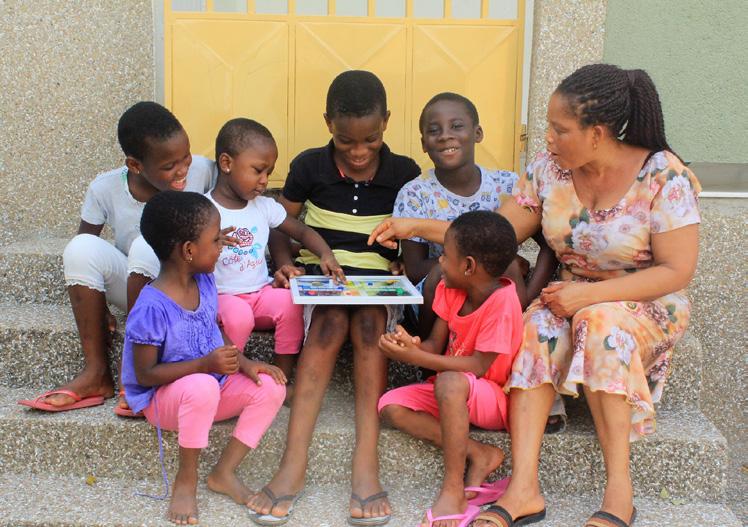2.3 RESULT BASED MANAGEMENT
on different continents, often those who are already responsible for assessing results in their organisation. Every RBM trainer in this pool gives a couple of training courses a year.
In order to achieve our goal we offer children, young people and families a range of
In 2018 and 2019, this approach has meant
programmes related to preventing child-family
that an impressive number of country teams
separation, family based care, education,
have been trained in RBM. In 2020, we could
youth employment, and humanitarian
not continue the training courses due to the
response and emergency aid. This does not
Covid-19 pandemic and the corresponding
mean our programmes are designed
restrictions related to travel and meeting in
according to a fixed format; all the projects are
person. This is why in the year in review the
context-specific and customised. After all, we
training course was adapted for use online, so
cannot expect the same action to always
that in 2021, the courses can also take place
deliver the same result. Just because
without any physical presence.
something works in one place does not mean it will be as successful somewhere else.
Connecting financial systems and
Simply because the problem, the circum-
data collection to RBM
stances, the parties with whom we cooperate
In 2020, the process did get underway to
are different in each location, and also change
better connect the federation-wide financial
over time.
systems and data collection method to RBM. The RBM training material was also
Systematic customisation
expanded, with a greater focus on coaching
This is something we have to take into
after the training course has taken place.
account. During a programme’s planning phase it is necessary to examine the needs,
The countries trained in RBM and with which
plan results, define the approach that would
we work closely are Uganda, Ghana, Chad
work best and with which partner we can best
and Guinea-Bissau.
cooperate. During the implementation phase, it is necessary to check whether the programme is running as we envisaged, if the intended goals are being achieved and what adjustments are needed. We must systematically plan, monitor and adjust the programmes where needed and evaluate them, precisely because there is no recipe for success. Result Based Management (RBM) is an adequate methodology for achieving this.
RBM training We began introducing the RBM methodology throughout the federation in 2017. The international office in Innsbruck, Austria, has developed training material and gave a course to approximately 60 staff members – 14 | SOS CHILDREN’S VILLAGES ANNUAL REPORT 2020






















